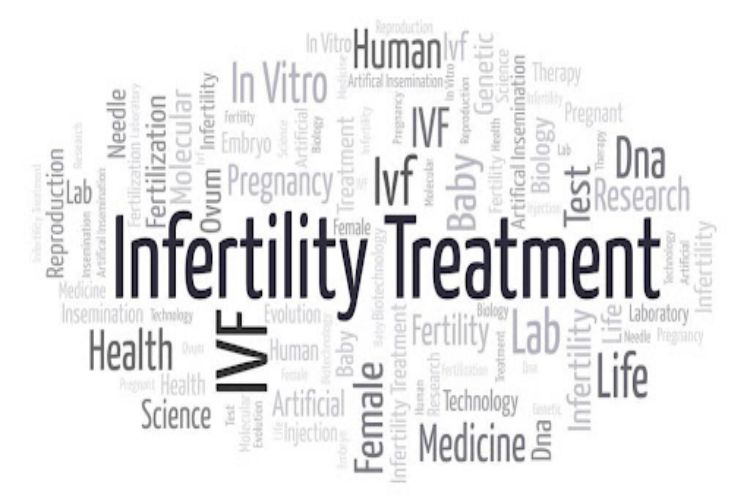 Introduction
Introduction
Infertility treatment in Thailand has become increasingly popular among couples seeking to conceive. With the help of modern technologies, fertility clinics and hospitals in Thailand offer a wide range of treatments, including assisted reproductive technology (ART) procedures such as in vitro fertilization (IVF) and intracytoplasmic sperm injection (ICSI). In addition, patients benefit from the high quality of medical care and low cost compared to other countries. As a result, couples from all over the world are turning to infertility treatment centers in Thailand for assistance. This article will explore the types of infertility treatments available in Thailand, the factors that make it an attractive destination for treatment, and safety considerations when receiving care abroad.
What is Infertility Treatment
Infertility treatment, or assisted reproductive technology (ART), is a medical process that helps couples achieve a successful pregnancy when they are unable to conceive naturally. The goal of infertility treatment is to help couples become pregnant, either through the use of medications, surgery, or other advanced reproductive technologies.
Infertility treatment in Thailand begins with a full evaluation and diagnostic workup by an infertility specialist. During this appointment, the couple will discuss their medical history and have physical exams as well as tests such as ultrasounds and blood tests to assess general health and detect any underlying issues that may be impacting fertility. Both partners need to participate in this evaluation process so that the doctor can get a complete understanding of the couple’s fertility status and develop an appropriate plan for treatment.
Once the diagnosis is established, infertility treatments may involve medication or surgical procedures such as intrauterine insemination (IUI) or in vitro fertilization (IVF). Medication-based treatments typically involve hormonal therapies which are designed to stimulate ovulation so that eggs can be released from the woman’s ovaries into her fallopian tubes where fertilization can occur resulting in pregnancy.
 Causes of Infertility in Thailand
Causes of Infertility in Thailand
Infertility is a growing problem in Thailand and the number of couples affected by it is steadily increasing. For many couples, infertility can be an emotionally devastating experience, as they struggle to understand why they are unable to conceive. In Thailand, there are a variety of factors that contribute to infertility, including lifestyle choices and environmental conditions.
One major cause of infertility in Thailand is poor lifestyle choices. As Thai culture has become increasingly westernized, unhealthy habits such as smoking and drinking have become more common among adults. These habits can lead to decreased fertility in men and women alike due to the toxic chemicals present in tobacco smoke and alcohol consumption disrupting hormonal balance or damaging reproductive organs. Other lifestyle factors such as high-stress levels or extreme dieting can also adversely affect fertility by reducing the quality of eggs or sperm cells being produced by the body.
Environmental conditions are another major factor contributing to infertility rates in Thailand. The country suffers from widespread air pollution due to burning fossil fuels for energy production, leading to higher levels of pollutants like mercury entering the atmosphere affecting both male and female fertility through hormone disruption or damage caused by free radicals entering through inhalation or ingestion of contaminated food sources such as fish caught from polluted waters near industrial zones.
Types of Infertility Treatment in Thailand
Infertility is a growing problem worldwide and Thailand is no exception. According to the World Health Organization, approximately 15% of couples are affected by infertility in Thailand. Luckily, there are a variety of treatments available to couples struggling with infertility. This article will discuss the different types of infertility treatment that are available in Thailand today.
The first type of treatment available is assisted reproductive technology (ART). ART includes procedures such as in vitro fertilization (IVF) and intracytoplasmic sperm injection (ICSI). IVF involves fertilizing an egg with sperm outside the body, while ICSI involves injecting a single sperm directly into an egg. Both techniques have proven successful for many couples facing fertility issues and can be performed at various clinics throughout Thailand.
Another option for couples dealing with fertility issues is intrauterine insemination (IUI). This procedure involves placing specially prepared sperm directly into the uterus using a catheter or syringe. It is effective for many couples dealing with male factor infertility or cervical factor infertility, as well as unexplained infertility issues. Many fertility clinics in Thailand offer IUI services at affordable prices.
Benefits and Risks of Infertility Treatment in Thailand
Infertility is a growing problem among couples today and infertility treatment in Thailand is becoming increasingly popular. While these treatments can be beneficial, there are also risks associated with them. This article will provide an overview of the benefits and risks of infertility treatment in Thailand so that you can make an informed decision about whether or not it’s right for you.
The most obvious benefit of fertility treatments in Thailand is cost. Compared to other parts of the world, fertility treatments are much cheaper in Thailand due to lower costs for medical care and lower labor costs for medical staff. This makes infertility treatment more accessible and affordable for many couples who may otherwise have difficulty affording it. Furthermore, Thai fertility clinics often offer advanced technologies such as IVF (in vitro fertilization) and IUI (intrauterine insemination), which can increase the chances of successful conception significantly when compared to traditional methods like artificial insemination or natural conception by intercourse alone.
Cost of Infertility Treatment in Thailand
Infertility is an increasingly common problem for many couples who are trying to conceive a child. In Thailand, infertility treatment can be expensive due to the high cost of medical care and medications. However, there are several options available to help couples afford the cost of infertility treatments in Thailand.
The first option is to explore fertility programs offered by international clinics in Bangkok and other major cities throughout the country. Many of these clinics offer reduced rates or discounts on their services and medications, making it easier for couples struggling with infertility issues to receive expert treatment without breaking the bank. Additionally, many of these clinics also provide emotional support for patients throughout their journey toward parenthood.
Another option is to look into grants or scholarships that may be available from private organizations or charities dedicated to helping individuals with fertility issues access affordable treatments in Thailand. These organizations often offer financial assistance through sponsorships and donations from other individuals and companies looking to support those facing difficulties in conceiving a baby naturally. While not all grants cover every aspect of fertility treatments, they can provide much-needed relief as well as peace of mind knowing that you have received some form of financial aid during this difficult time.
Conclusion
Infertility treatment in Thailand is becoming increasingly popular due to its affordability and excellent medical care. With a wide range of treatments available, Thailand provides an ideal destination for couples looking for successful fertility treatments. The country’s high success rates and cutting-edge technology also make it a great choice for those seeking the best possible outcome from their infertility treatment. With professional care, guidance, and support from the medical teams in Thailand, many couples have been able to start their families after undergoing fertility treatments at Thai clinics.




